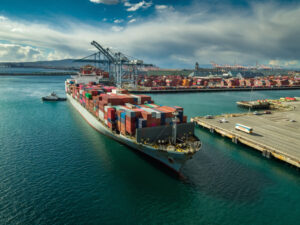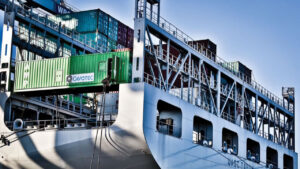With the International Maritime Organisation’s (IMO) emission reduction approach on the horizon, vessel data analysis will prove key to enabling the industry to meet the new targets.
Shipping owners and operators must use vessel data to build a fuller picture of unnecessary fuel consumption, this according to GreenSteam, a marine data intelligence business that helps operators cut fuel wastage and reduce emissions by optimizing vessel performance.
While the shipping industry has been preparing for the sulphur emissions regulations coming into force on 1 January 2020, these are just the beginning of greenhouse gas emissions regulations with reductions targets of 85% by 2050 a GreenSteam statement notes.
With the IMO favouring a goals-based approach, owners and operators are free to choose the most effective technology strategy to reduce carbon emissions by 40% in line with 2030 targets.
The meet these targets hardware-based technologies, electric drivetrains and air lubrication solutions are being considered to cut emissions. Through this, GreenSteam acknowledges that industry is expected to widely adopt machine learning as a means of accurately quantifying each operational lever that can cut fuel consumption and reduce emissions as part of a multi-solution approach.
GreenSteam believes the shipping industry cannot ignore any area of operational fuel wastage, as it considers each area of new technology. The company added that traditional methods of vessel data analysis ‘exclude a staggering 90% of vessel data’ despite being still widely used.
E-Journal – Shipping 2020: A Vision for Tomorrow
Machine learning enables data analysis of almost all vessel data, with powerful computing technology “connecting the dots” and identifying the relationship between each of the 13+ factors affecting vessel fuel efficiency. This inclusive and accurate approach can highlight fuel savings opportunities 2-4x higher than traditional or legacy data analysis, according to GreenSteam.
Simon Whitford, COO of GreenSteam, commented, “Vessel performance is highly complex involving multiple and often inter-related factors. In order to identify and measure the true level of fuel wastage it is vital that all data is used and analyzed. Vessel owners and operators who are not using data analytics informed by machine learning may only be working from 10% of the critical information they need to make decisions on their vessel and fleet operations.
“Each tonne of HFO fuel wasted enters the atmosphere as three tonnes of carbon dioxide. Machine learning provides a solid foundation for clear, actionable advice empowering ship owners and operators to cut fleet-wide GHG emissions”
GreenSteam offers its own machine learning platform which offers vessel optimization and measures the contribution of other complementary emissions reduction technologies.
GreenSteam’s machine learning platform is being continuously updated and in turn the model of each vessel is continually refreshed and improved with the benefit of each new day’s data, the company explained.









